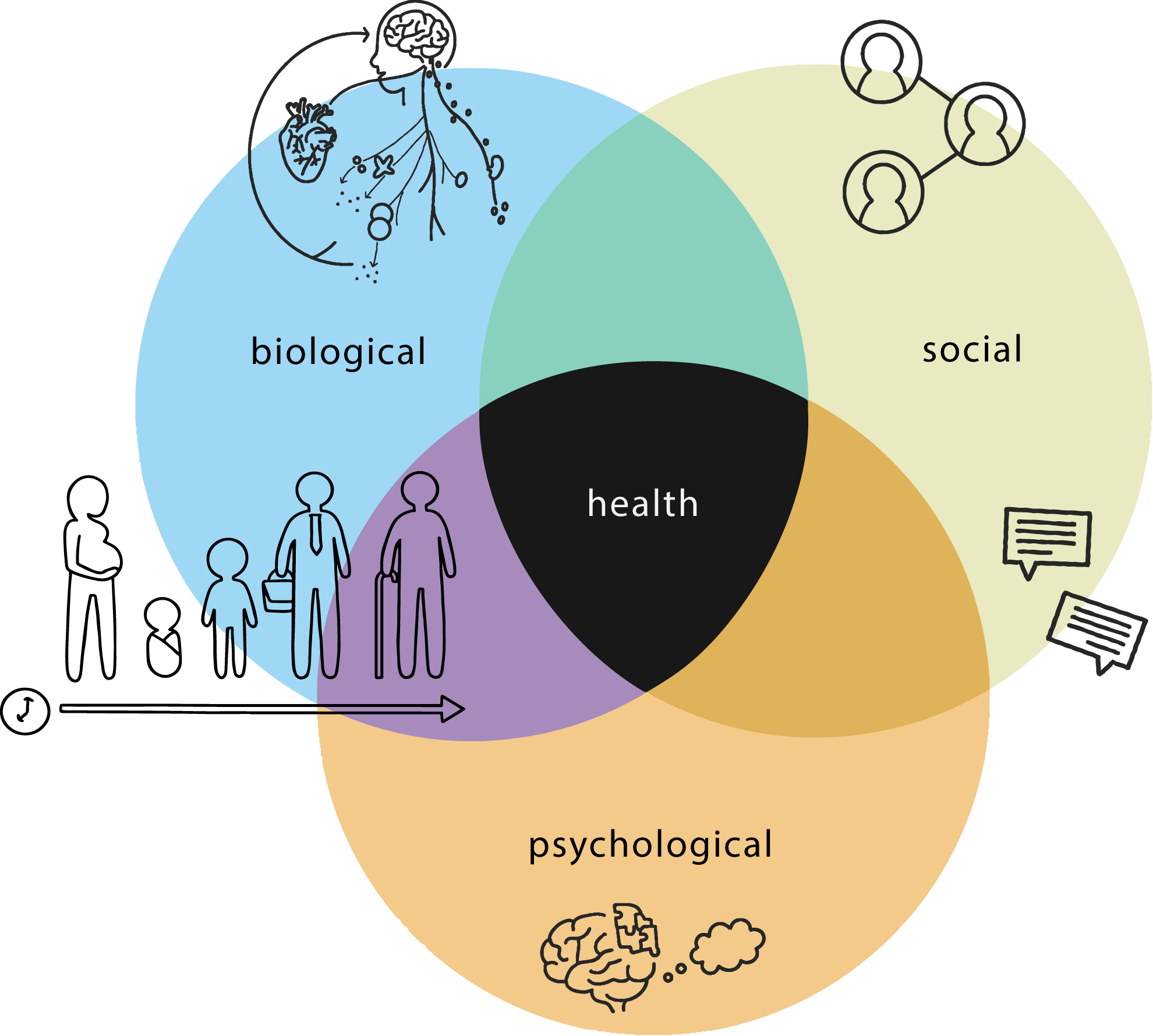
The Field of Health Psychology
Scientists and public health professionals estimate that 70% of all diseases are preventable. Health psychology plays an important role in understanding how behaviors, cognitions, and emotions impact mental and physical health. With this knowledge, health psychologists 1) identify psychosocial and behavioral factors that enhance or undermine health and 2) design and evaluate interventions that will reduce disease risk, improve treatment outcomes, and improve the quality of life of people coping with illness or seeking to prevent illness. For a brief overview for how behavior impacts health, click here.
Careers in Health Psychology
Students with a PhD in health psychology are highly competitive in the academic job market, with many employed in traditional academic departments of psychology, biobehavioral health, kinesiology, and human development. They are also employed in schools of medicine and public health, as well as in free-standing comprehensive cancer centers.
Common non-academic jobs include positions in for profit consulting firms, tech firms (e.g., mobile health technology), pharmaceutical companies, as well as non-profit research (e.g., institutes focused on health policy), private and publicly funded research institutes, government organizations, and an array of non-profits. As experts in the area of health and behavior, health psychologists collaborate closely with researchers and physicians to provide holistic person-centered health care.
Degree Types
At the doctoral level, there are two Ph.D. degrees one can obtain in health psychology. Although the curriculum has considerable overlap, the Ph.D. in clinical health psychology provides additional training in clinical services and a direct pathway to licensure. Accordingly, in addition to the course requirements a graduate student must complete to obtain a Ph.D. in health psychology, clinical health psychology Ph.D. students are required to fulfill the requirements for licensure outlined by the American Psychological Association or equivalent governing body (e.g., Academy of Psychological Clinical Science).
For more information, and a description of the opportunities available for those interested in a terminal master's degree in health psychology or a Psy.D. with a health psychology emphasis, we refer you to the following webpage developed by the society of health psychology: Education & Training Council - Society for Health Psychology.
